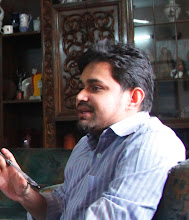to donate in education’ ’
Educationist Professor Serajul Islam Choudhury talks to Mushfique Wadud on the new education policy, the challenges in implementing it and the state of the education system in the country
The present AL-led government had formed a committee to formulate the national education policy who submitted the draft copy of the education policy 2009 on September 7. Since independence, seven such education commissions and committees had been formed, however, none of the policies ever saw the light of day. What do you think are the main challenges to implementing the new education policy? 
photo by Prito Reza
Unfortunately, politics and bureaucracy are the two main obstacles to implementing these policies. One government prepares a policy and after its tenure ends, the new government brings new ideas into its policy. They even change history. Moreover, some foreign bodies suggest experimental modifications as conditions for providing loans. The bureaucracy collaborates with all of these.




































